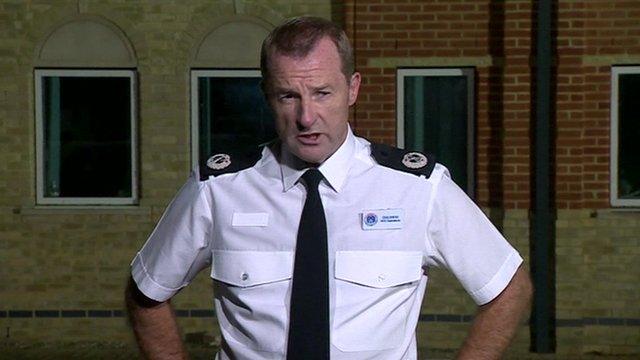Ashya King's parents fight extradition from Spain
- Published
Ashya King's brother, Danny: "We just wanted to do what was best for Ashya"
The parents of Ashya King are being held in police custody after they refused to consent to their extradition to the UK at a court appearance in Spain.
A High Court judge in Madrid ruled Brett and Naghemeh King will remain in custody for a maximum of 72 hours while he considers granting bail.
An international search was launched after the couple took the five-year-old, who has a brain tumour, from hospital in Southampton on Thursday.
Ashya is now in hospital in Malaga.
His parents were taken to the Soto de Real prison on the outskirts of Madrid following the court hearing.
No date was set for their return to court to hear the judge's decision on their bail application.
Ashya was found with his family in Malaga on Saturday, after they travelled to Spain where they have an apartment. Mr and Mrs King were arrested on the same day.
Hampshire Constabulary obtained a European arrest warrant on the grounds the Kings neglected their son, who was receiving specialist care for his condition when he was taken from the UK.
A Crown Prosecution Service (CPS) spokesperson said there was not yet sufficient evidence to charge the parents with an offence, but added that a decision on whether to prosecute will be made once further evidence is examined.
The five-year-old, from Portsmouth, was made a ward of court at the request of Southampton General Hospital.
Dr Michael Marsh, medical director at University Hospital Southampton NHS Foundation Trust, said he regretted that their communication and relationship with the King family had "broken down".
Julian Wooster, Portsmouth City Council's director for children's services, said: "At the request of Southampton Hospital the council obtained a temporary wardship order on Friday, only to direct that Ashya King be presented for medical treatment."
The BBC's legal affairs correspondent Clive Coleman said wardship means major decisions relating to the child must be approved by the court.
The order relating to Ashya will be reviewed on Wednesday.
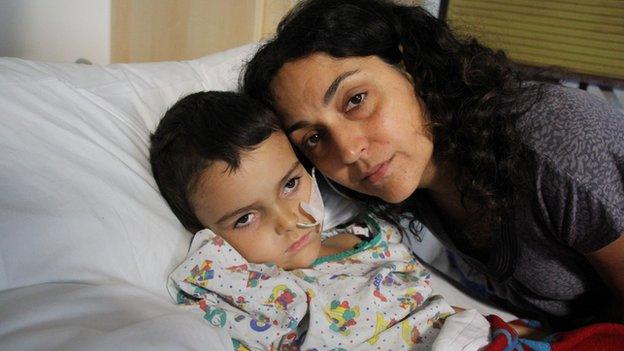
A picture posted on Facebook showed Ashya with his mother Naghemeh King
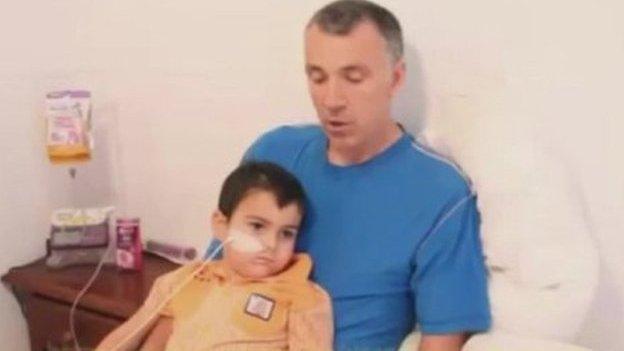
Ashya King's father Brett spoke in a YouTube video explaining why they had travelled to Spain
Proton beam therapy
Ashya has been moved from a high dependency to a general ward.
A spokesman for the children's hospital where he is being treated said his condition was stable.
In a video on YouTube, Ashya's brother, Naveed King, said his parents ensured Ashya had the same resources available to him as in hospital when they took him to Spain.
Mr King said in an earlier video posted that the family wanted to seek proton beam therapy for Ashya - a cancer treatment that the NHS would not provide.
It is understood they travelled to Spain, where they have a holiday home, to sell the property and release funds to pay for the treatment.
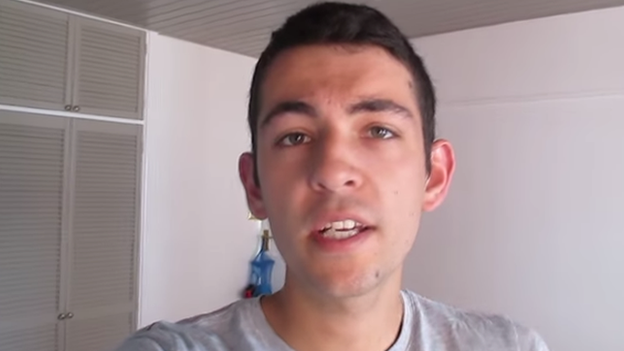
Ashya's brother, Naveed King, posted a video on YouTube defending his parents' actions
The Proton Therapy Centre (PTC) in Prague, Czech Republic, which received a request from Brett King on 20 August, said it can treat Ashya immediately if he is eligible.
Iva Tatounova, director of strategy at PTC Czech, said: "The centre is keen on starting the treatment in a few days. The costs would be dealt with later on."
She said the centre would need the necessary medical documentation before they could agree on the appropriateness of treatment, which usually costs £60,000 - £65,000 for children.
Mr and Mrs King have not been charged with any offence in Spain. The extradition process could take several months.
Danny King said the family had found it incredibly difficult not being able to visit Ashya in hospital.
"They did allow a voice recording that was set-up to be played to Ashya... I'm grateful that the doctors appreciate how important it is for Ashya just to hear the voice of one of his brothers," he said.
"We never thought that this would be such a big deal, we just want to do what's best for Ashya.
"We're not oblivious, his life will be shorter than most kids, but we want his quality of life to be the best.
"We've done so much research on all treatment that is available to Ashya - I know that side effects for the proton beam therapy are less and he would have more or less a normal life if he received that treatment.
"We know it's not a miracle treatment."
Downing Street said the priority should be for Ashya to receive "the very best medical care".
A spokesman said it was an understandable parental instinct to want to do the best for your child and understandable that relevant authorities with responsibility for the welfare of children should also take an interest in such a case.
He added: "People will understand and be worried by the grave illness that Ashya is suffering."
A spokesman for Hampshire Constabulary said its officers in Spain had not interviewed the Kings and were not there to arrest them - they were there to deal with technical aspects of the arrest warrant.
Ashya's grandmother Patricia King: "It's absolutely disgraceful - [his parents] are being treated like criminals"
On Sunday, Assistant Chief Constable Chris Shead refused to apologise for the way officers conducted their search for the family. He said medical advice was that Ashya had been in "grave danger".
Dr Marsh, from the trust said: "Our first concern is for Ashya's welfare and we are working with the police and the team in Spain to help him get the best care possible."
Referring to the proton beam therapy, he added: "There are some tumours that respond well to this type of treatment, but there are some cases where there isn't the evidence that this is a beneficial treatment. Where the evidence supports this treatment we have made a referral and patients have been treated abroad."
The charity Cancer Research UK says proton beam treatment is available on the NHS in the UK only for eye conditions.
The NHS said the medical treatment costs around £100,000, but the figure is based on sending someone to the US.
There are also numerous centres providing the treatment in Europe where it can cost less than £20,000.

Nick Triggle, BBC Health Correspondent
It is perfectly possible to challenge medical advice. One of the most important principles of healthcare is that the patient must consent to treatment.
Anyone aged 16 and over can refuse treatment if they wish unless they are deemed not to have the ability to do so under the Mental Capacity Act.
If parents disagree with the decision of their son or daughter aged between 16 and 18 doctors will encourage the family to reach a consensus. If that does not happen it can go to court.
For children under the age of 16, additional consent from a person with parental responsibility is required unless the patient has enough understanding and intelligence to fully appreciate what is involved in their treatment.
If the person with parental responsibility refuses treatment and doctors believe that decision could lead to death or severe permanent injury an application can be made to the court of protection to overrule them.
When it comes to wanting treatment that is not being offered, it is less clear cut.
Patients do not have an automatic right to a second opinion although most hospitals will give them one.
Many also have ethical committees - or similar groups - that will consider individual cases when treatment options are disputed. Beyond that patients can - and have in the past - applied for a judicial review.

- Published1 September 2014
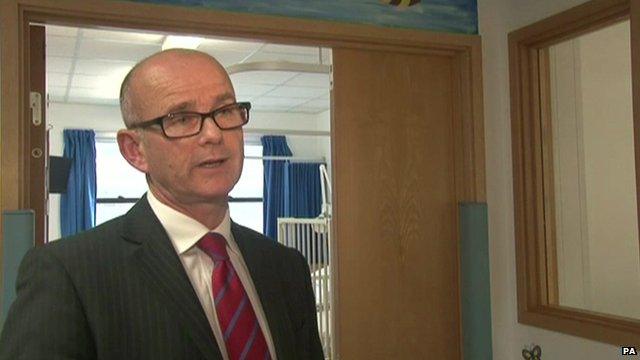
- Published1 September 2014
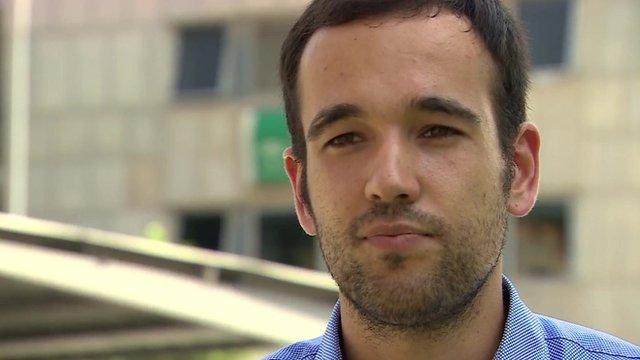
- Published31 August 2014
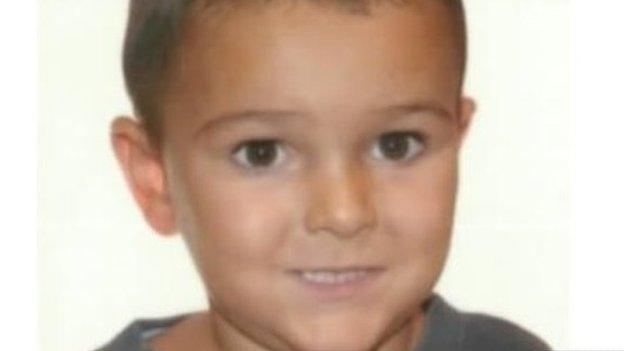
- Published31 August 2014

- Published31 August 2014
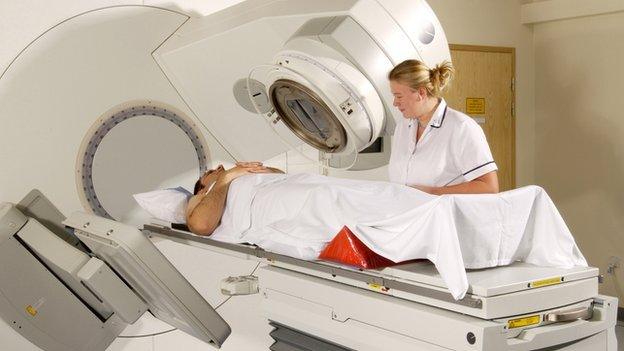
- Published31 August 2014

- Published30 August 2014
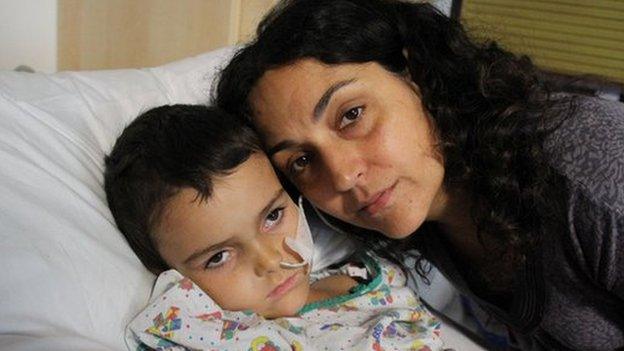
- Published31 August 2014
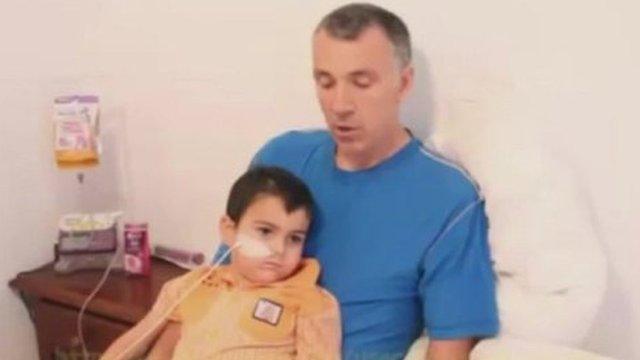
- Published31 August 2014
